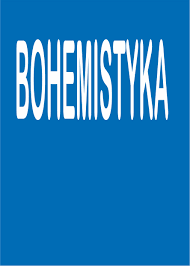Языковые факторы развития чешского политического дискурса: прецедентные феномены
Language Factors in the Development of Czech Political Discourse: Precedent Phenomena
Author(s): Alexandra A. JevlanovaSubject(s): Sociolinguistics, Cognitive linguistics, Politics and communication, Rhetoric
Published by: Uniwersytet Adama Mickiewicza
Keywords: precedent phenomena; political discourse; president; Vaclav Gavel; Vaclav Klaus;
Summary/Abstract: The aim of this study was to study the functioning of the precedent phenomena of the Czech presidential discourse of Vaclav Havel and Vaclav Klaus. This article clarifies the role of precedent phenomena as one of the main sources of expressiveness of speech activity, reflecting a high level of communicative competence of linguistic activity, a linguistic personality and serving to implement its speech intentions, thereby forming a cognitive thesaurus of the target audience. The precedent phenomena in the speeches of V. Havel and V. Klaus consistently link the text into a single whole, express the system of assessments of the national linguo-cultural community and are well known to him. They create a certain system of values that have developed historically, regulating social behavior, condemn or approve of it. Using precedence is an indicator of competence by which presidents evoke empathy in their audience, which helps to reduce the distance between the president and citizens. A large group is made up of anthroponyms in the speeches of V. Klaus (names of famous politicians, public figures who contributed to the development of the Czech Republic) - A. Vondra (ex-former Minister of Foreign Affairs of the Czech Republic), V. Dyk, T. G. Masaryk; examples of world literature and cinema (Goethe’s Faust, A. Dumas’s The Three Musketeers, the protagonist of the series Thirty Cases of Major Zeman) anti-utopian novels by O. Huxley, J. Orwell, E. Zamyatin; philosophical works of M. Heidegger Being and Time', often resorts to self-citation. Among the precedent statements V. Havel uses the names of saints and famous freedom fighters - St. Vojtech, J. Palach, the famous theologian, thinker, teacher and writer J. Comenius and the American preacher M. L. King; often refers to the Bible and to biblical stories - the fate of Christ, the Apocalypse, Ten Commandments.
Journal: Bohemistyka
- Issue Year: XXII/2022
- Issue No: 1
- Page Range: 109-121
- Page Count: 14
- Language: Russian

